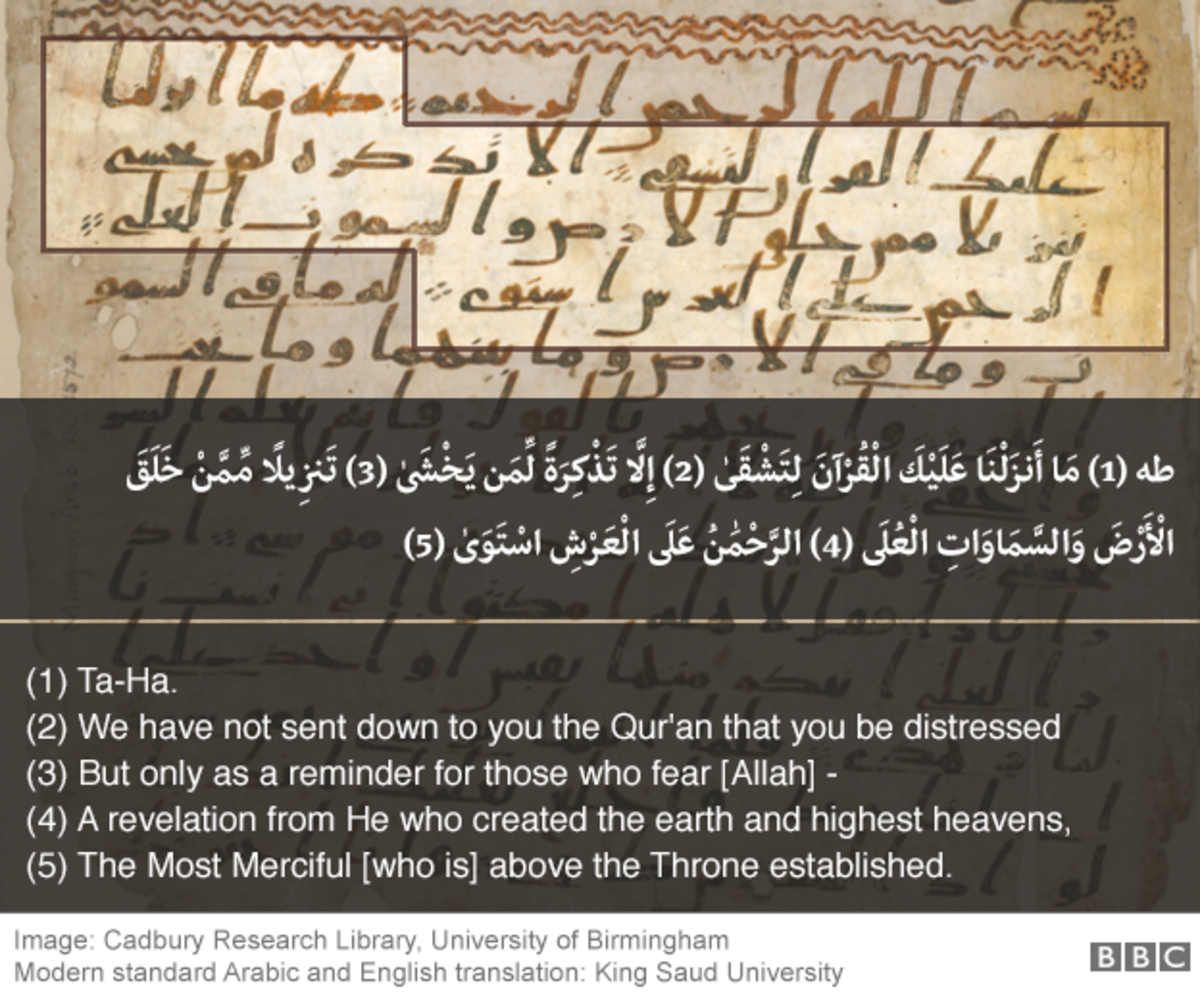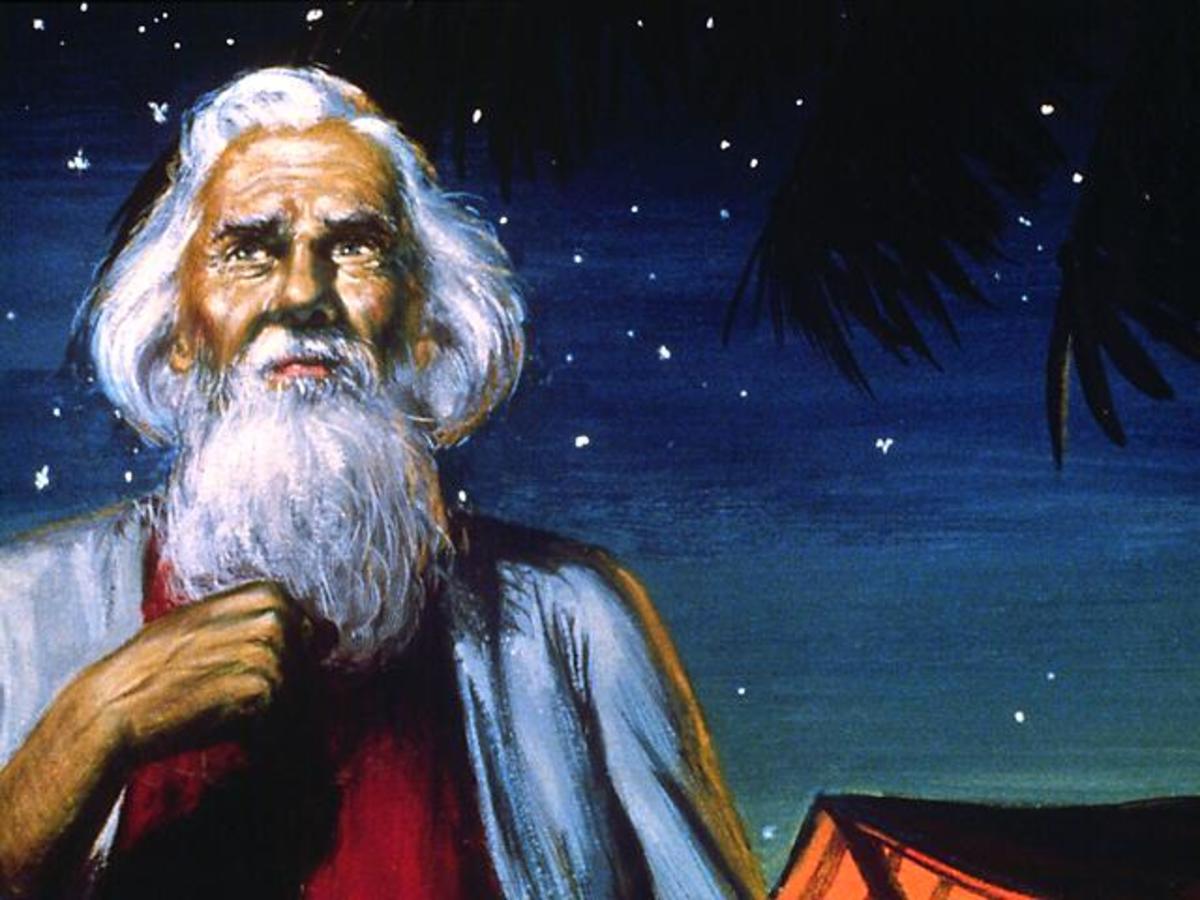Abraham as a Youth - A Sequential Reading of the Quran - A Parallel to the Genesis Rabbah - An Awakening (A).
City by the great river whence came Abraham and his family.

Abraham's Awakening.
This is a translation of the Qur'an. The text is ultimately derived from The Quranic Arabic Corpus, University of Leeds, and words are duly considered, and adapted, in reference to other translations, and scriptures. Some Arabic words, such as, Rabb, meaning, One-exalted, are given a Hebrew equivalent, in this case, Adon, meaning Lord. Words in brackets are due to the merger of two different sources where one is lacking the complete text, or else for clarification. Words in square brackets indicate an interpolation, usually where a transliteration is insufficient to convey a coherent meaning. The source/s from the bracketed numbers are given a cross-reference designation, S for Surah, and the relevant number, and verse.
(1) And recite Ab-raam's news to them. (2) And indeed among (Noach's) like, [so too was] Ab-raam, for certain, (3) when he came to his Adon (Lord) with a passive heart. (4) And thus we showed Ab-raam the kingdom of the heavens, and the Earth, so that he would be among the ones who are certain.
(5) So, when the night covered over him, he saw a star.
He said, “This [is] my Adon.”
Yet, when it set, he said, “I like not the ones that set.”
(6) When he saw the Moon rising he said, “This [is] Adonay.”
Yet, when it set, he said, “If my Adon guides me not, I will surely be amongst the people who went astray.”
(7) When he saw the Sun rising he said, “This [is] Adonay, this [is] greater.”
(8) Yet, when it set, he said, “Oh my people, indeed I am free of what you associate!”
(9) And, beyond doubt, We gave Ab-raam his guidance beforehand, and We were, regarding him, thoroughly acquainted, (10) when he said to his father and his people, (11) “What [do] you worship? (12) What are these, the statues, which you [are] devoted to?”
(13) They said, “We worship idols, so we will remain devoted to them.”
(14) He said, “Do they hear you when you invoke, (15) or [do] they benefit you, or [do] they...harm?”
(16) When he said to his father, and his people, “What is it you worship? (17) Is it a falsehood, gods other than The-God, you desire? (18) Then what think you concerning the Universal Adon? (19) Indeed I have turned my face to The-One who created the heavens, and the Earth, one upright, and I am not of the polytheists!”
(20) And his people argued with him.
(21) They said, “(Not so, but) we found our forefathers (doing the-like,) (worshipers of them).”
(22) He said, (23) “Do you see what you have been worshiping, (24) you and your forefathers?
(25) Doubtless you are, as were you and your forefathers, in obvious error.”
(26) They said, “Have you come to us with the truth, or [are] you from those who play about?”
(27) He said, “Not so. Your Adon [is the] Adon [of] the heavens and the Earth; The-One, who created them! And I am, to that, one from the witnesses!”
(28) And when Ab-raam said to his father, Sarar, “Do you take idols as-gods? I certainly see you and your people [to be] in blatant error!”
(29) He said, “Do you dispute with me concerning God, yet He has certainly guided me? And I fear not what you associate with Him, except for a thing Adonay desires. Adonay encompasses everything; understanding. Then, will you not pay heed?”
(30) And Ab-raam when he said to his people, “Worship God, and fear Him. That [is] better for you, if you only-knew. (31) Other than God, you worship only idols, and you create falsehood. Indeed, those whom you worship, other than God, possess naught of provision for you. So seek the provision from God, and worship Him, and be grateful to Him. To Him you will be returned. (32) And if you deny, then nations (Heb.-goyim) certainly denied from before you!”
(33) “And by God, surely I will plot [against] your idols, after you are underway, turning [your] backs.”
(34) “And how could I fear what you associate, whilst thou art fearless that you have associated with God what He did not send down of any authority, for it, to you? So, which [of] the (two) parties has more right to confidence, if you know? (35) Indeed they [are] enemies to me, except [an] Adon of-the Universe, (36) The-One who created me, and He guides me, (37) and The-One, He who gives me food, and gives me drink. (38) And when I am ill He then cures me. (39) And-The-One, who will cause me to die, then He will give me life. (40) Moreover, I hope, The-One who will forgive my faults for me [on] Judgment Day. (41) And forgive my father, for-indeed he is from those astray. (42) And disgrace me not [the] day they are resurrected.”
(43) Then he glanced a glimpse at the stars (44) and he said, “Indeed, I am sick!”
(45) So they turned away from him, pulling back.
(46) [It] is not for those who believe that they ask forgiveness for the polytheists, even though they be near of kin, after it has become distinctly clear to them that they [are] companions of-the Hellfire. (47) And Ab-raam was not asking of forgiveness for his father except through a promise he had promised him. But when it became distinctly clear to him that he was an enemy, to God, he disassociated from him. Indeed, Ab-raam was compassionate, forbearing. (48) And [it] is not [for] God that he lets a people go astray after (the time) when He has guided them, until He makes clear to them what they should fear. Indeed God [is the] All-Knower [of] every thing. (49) Those who [have] believed do not cover their belief with wrong-doing. Those [ones] have the secure confidence, and they [are] guided. (50) And this, Our line of contention, We gave her [to] Ab-raam against his people. We raise in-degrees whom We desire. Indeed, your Adon [is] All-Wise, All-Knowing.
(51) “Adonay, grant me wisdom, and unite me with the righteous. (52) And grant me an honourable mention among those hereafter. (53) And make me of [the] inheritors [of] a paradisaical garden.”
(1) S26:69, (2) S37:83, (3) S37:84, (4) S6:75, (5) S6:76, (6) S6:77, (7) S6:78a, (8) S6:78b, (9) S21:51, (10) S21:52a/S26:70a, (11) S26:70b, (12) S21:52b, (13) S26:71, (14) S26:72, (15) S26:73, (16) S37:85, (17) S37:86, (18) S37:87, (19) S6:79, (20) S6:80a, (21) S21:53/S26:74, (22) S21:54a, (23) S26:75, (24) S26:76, (25) S21:54b, (26) S21:55, (27) S21:56, (28) S6:74, (29) S6:80b, (30) S29:16, (31) S29:17, (32) S29:18a, (33) S21:57, (34) S6:81, (35) S26:77, (36) S26:78, (37) S26:79, (38) S26:80, (39) S26:81, (40) S26:82, (41) S26:86, (42) S26:87, (43) S37:88, (44) S37:89, (45) S37:90, (46) S9:113a,c, (47) S9:114, (48) S9:115, (49) S6:82, (50) S6:83, (51) S26:83, (52) S26:84, (53) S26:85
Abraham as a youth, according to the Quran - a parallel to the Genesis Rabbah
Commentary On The Qur'an.
S6:78a: Allahu Akbar! Abraham sought the truth regarding the power to create and remove, and his process of scientific enquiry leads the believer to the conclusion that God is Supreme.
S21:52b: Statues to which you are devoted, can a man make gods (Jer.16:19-20)?
S6:74: Parents have no authority to incite error in religion so, if they do this, disobey them (S29:8). Ab-raam's father, A/Sarar (Heb.-Prince). In the Islamic factional contentions renowned in modern Shiaism, an argument arose in the year 1927, with the Sunnis, over whether Ali (Ali ibn Abi Talib, relative and companion to prophet Mohammad, and a son of Yishmael) had ancestors who were idol worshipers (Sultanu'l-Wa'izin Shirazi, Peshawar Nights Shia Islam In Sunni Traditions, Yasin Publications, USA, pp.511-515). The Qur'an and Tanakh actually use archaic terminology which is difficult for those in a more modern era to conceptualise. Such is always the difficulty in identifying the family relationship between Ab'raam ben Terach and his first wife, solely from the Tanakh. The Qur'an identifies the father of Ab'raam as a figure given the title Azara (S6:74). So does this represent a common, or a proper noun, or even both? In Shiaism there is a doctrine pointing to divine infallibility of all their early Islamic leadership (cf. S9:117). This perspective spilled over into a suggestion that Azar was Ab'raam's uncle. I considered this possibility diligently, but it could not be reconciled, even if Azar was a maternal uncle. In terms of 'infallibility', one only has to look to the Matthean genealogy of Miriam in the royal line, leading up to the Babylonian exile, to determine that even Yeshua, pbuh, had some seriously misguided ancestors. Considering the children of Adam, Seth himself was not a firstborn son (Gen.4:1-2, 25). The Samaritan Torah points to this being a common factor from Shem. Maybe it was the rabbis, or even some earlier faction who sought to erase this matter, and Ab-raam's resistance to his father. Yet there is an Islamic text, from a source which the Shias reject, that contradicts the concept of a child being inherently ideologically twisted in infancy. For the prophet said, “Every child is born with a true faith of Islam, and his parents convert him to (Rabbinic) Judaism, or 'Christianity', or Magianism. As an animal delivers a perfect baby animal, do you find it to be mutilated?” (Sahih Al-Bukhari, Vol.2, #467).
The Sunni argument pointed back to the established lines of family genealogy. According to the language of the Tanakh, the speech of Ab'raam was ancient Hebrew, as implied by a traditional Islamic text, said to have come from the prophet (Dr. Muhammad Taqi-ud-Din al-Hilali And Dr. Muhammad Muhsin Khan, Translation of the meanings of the Noble Qur'an In The English Language, King Fahd Complex For The Printing Of The Holy Qur'an, Madinah, K.S.A., p.286), which states that Hagar's tongue was not initially Arabic. Therefore, the noun azara should approximate a word, or a root in Hebrew. There is no case for this being a known word of Arabic in the formative Islamic era. Ironically, if we turn to Ab'raam's wife's new name, Sarah, then the masculine form of that noun is Sarar. Tentatively this may be the Hebraic, or authentic form of (a)zara, being itself the Arabic rendering of sarar (שרר-H8323). Seemingly that would make Sarah a jibe from Allah against Terach. A princess versus a prince, although the Brown-Driver-Briggs' Definition gives these additional meanings: to be/act as a prince, to rule over (overlord), contend, hold power, prevail over, reign, govern. Such meanings mesh well with the Qur'anic narratives of Abraham.
The debate extended into the issue of baseborn ancestry (cf. S19:28). On this matter there was no disagreement on the legitimacy of Ab-raam's lineage, and on to Mohammad, peace be upon them.
S21:57: According to Islamic tradition, there was a pagan celebration at hand. Ab-raam seized his opportunity.
S26:85: Give me, my Rabb, a place in Paradise (S66:11).
© 2019 theomajor








